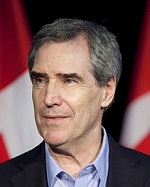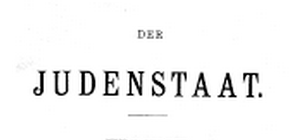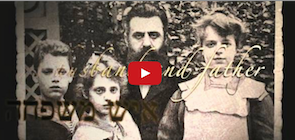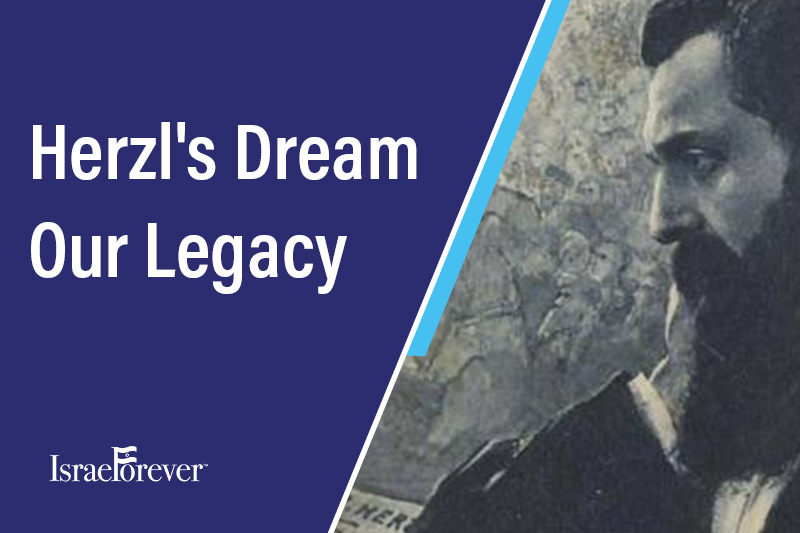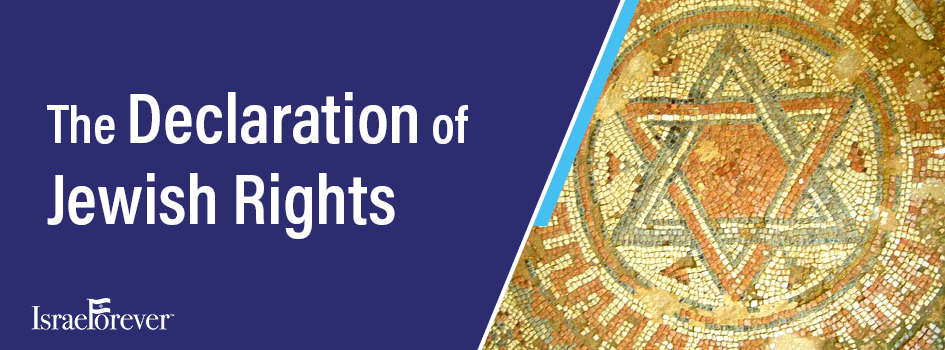The Legacy Of Theodor Herzl
By Michael Ignatieff
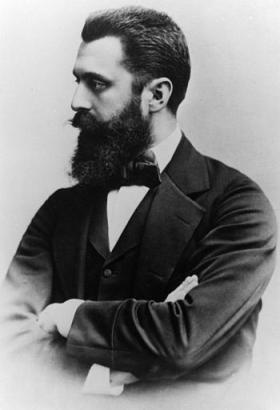
In the last nine years of Theodor Herzl's short life - he died at the age of 44 in 1904 - he created the Zionist movement and all of its basic institutions. The drama of these achievements was enhanced because he looked the part of an ancient king of Israel, and he played the role consciously, to extraordinary effect. Herzl's career as a Zionist leader tended to obscure, perhaps even from himself, the profound originality of his thinking.
Herzl invented an unprecedented use of anti-Semitism as a positive force in the battle for the equality of the Jews. He suggested that anti-Semitism was not only a problem to the Jews; it was also disturbing the stability of Europe.
Since Herzl was a rational man, he did not imagine that governments and societies had need of Jew-hatred to deflect angers against the ruling powers onto scapegoats. He was entirely unaware of the dark places in the human soul, in which hatred exists for no reason, only because some people need to hate others.

A popular anti-Semitic theme in 19th century Vienna is the portrayal of the Jew as a coward and as physically weak (circa 1848)
On the contrary, Herzl was sure that even anti-Semites were reasonable people who wanted order in their societies. Helping Jews to become normal people in a state of their own would remove the cause of anti- Semitic eruptions.
Thus, in Herzl's imagination, anti-Semitism became both the unifying factor of the Jewish community and the guarantor that the world would help Jews achieve their normalcy.
The Zionist state was not only a Jewish need; the powers of the world required a Jewish state in their own interests, because it would remove a major cause of tension in their societies.
The corollary of this assertion was a basic redefinition of the nature of Jewish solidarity.
Herzl was the first to declare, boldly and without apology, that Jews now shared not a faith, in which some did not believe, but a condition which affected them all, and that this condition was the lasting danger to people who were a minority everywhere.
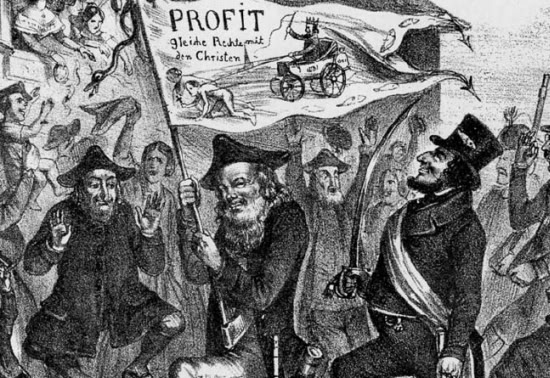
An anti-Jewish caricature that parodied Jewish emancipation in Europe, suggesting that Jews expected their new-found liberties to allow them to profit even further at the expense of the Christians.
The center of Jewish life became not the "problem of Judaism," how to cultivate the ancient faith in a secular age, but rather the "problem of the Jews." Therefore all Jews were constrained, regardless of what they thought, to join together to change their status. Even the Jewish state, the "cure" that Herzl proposed for this disease, would need no particular cultural content.
Herzl envisaged his state- to-be as a Western democracy, founded on advanced principles of social justice, in which the citizens would be free from all cultural and religious constraints. Herzl was proposing national politics and civic life, and not religious faith and study of the sacred texts, as the essential communal business of the Jewish people.
How well have Herzl's basic assertions stood up since they were first published at the end of the nineteenth century?
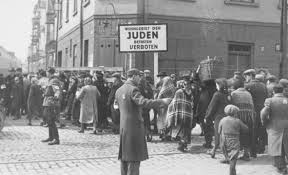
On anti-Semitism, Herzl was too much of an optimist. He even asserted in The Jewish State that the emancipation of the Jews was an irreversible fact of history - but the Nazis did reverse the equality that the Jews in Germany had held since the middle of the nineteenth century.
On the basis of Herzl's rationalist premises, without taking into account the demonic element in the soul of Jew-haters, he did not, and could not, predict the Holocaust. Still, he understood better than anyone before him that anti- Semitism was a world problem, and that the Jews could be secured against it only if the powers of the world took the lead in creating a solution.
He was undoubtedly right that the status of the Jews in the world would be transformed by the creation of a Jewish state. Jews would become not a people always in search of goodwill, but one that had some power in its own hands.
Herzl's assumption that, once a Jewish state is established, the Jews of the world would move there or assimilate has been disproved. However, the existence of the State of Israel has actually tremendously impacted, in varying ways, the dignity and the self-respect of the Jewish communities in the Diaspora.
They have not chosen between Herzl's alternatives - emigration or assimilation - to become "normal"; they have remained "abnormal" by continuing to be Jews all over the world.
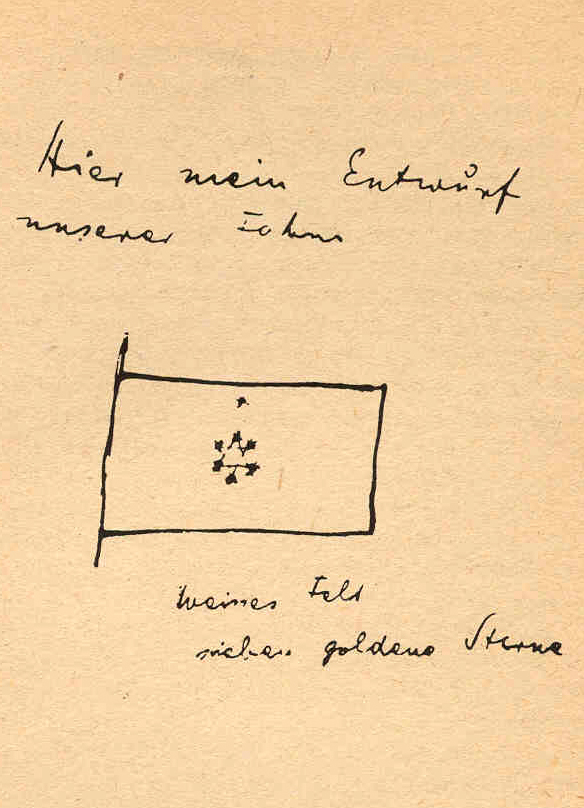
A sketch in Herzl's Diary of a proposed flag for the Zionist movement.
And yet, without the success of Zionism in creating the state of Israel, the relations between Jews and non-Jews would not exist now, a century after he wrote The Jewish State, on a plane of unprecedented equality.
Herzl's assumption that the force of the Jewish religious and cultural tradition was essentially spent has not been borne out. Despite the great bloodletting in the Second World War, which destroyed the major centers of Jewish religious culture in all its varieties, the vitality of Judaism has been rising in recent decades. In the Israeli state and society, the traditionalist forces are acquiring ever greater power. The Zionist enterprise itself is now conceived by many in Israel, and by supporters abroad, in messianic terms, as the beginning of "the end of days" that had been predicted in the religious texts. And yet, Herzl's insistence that the Jewish state must be a secular democracy remains Israel's dominant commitment.
The central concern of the Jewish community is increasingly becoming, everywhere, not its "normalcy," or its equality, which were Herzl's dominant concerns, but its values. One suspects, on a close reading of all of Herzl's writing, and especially of his diaries in the last years of his life, that he was himself at the beginning of such a journey. Toward the end, he was much more aware of the continuing significance of Jewish faith and culture, and he was moving toward an emotional attachment to the history and the traditions of his people.
Like all great books, The Jewish State is not important because its program has been carried out as written, or because its premises have remained unchallenged. It is a classic because its author took a radically new approach to the relationship between Jews and the world. In this way, Herzl transformed the Jewish people.
Be a part of Herzl's legacy and continue his commitment to the Jewish national homeland.
Read and sign the Declaration for Jewish Rights and show that you stand with our legal rights to our homeland.
About the Author
